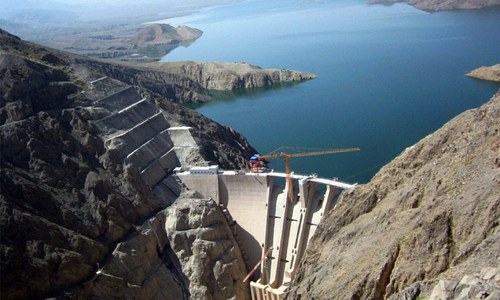


China and Pakistan signed a commercial contract for the Dasu hydropower plant on March 8, marking the start of the latter’s long-delayed energy project.
As one of the most important energy projects listed in the Vision 2025 program prepared by the Water and Power Development Authority (WAPDA) in 2001, the Dasu hydropower plant will be built mainly by China’s Gezhouba Group Co. Ltd. The plant is located 350 kilometers north of Islamabad, the capital of Pakistan. Once finished, it will generate 12,000 GWh of energy per annum, shrinking the country’s electricity shortage and creating 8,000 local jobs.
According to statistics from WAPDA, the hydropower plant will be operated in accordance with the daily cycle of the nearby river. A 242-meter-high concrete gravity dam and a 74-meter-long reservoir will be built behind the dam. There will also be an underground powerhouse with 12 turbines.
Hydropower plants have always been a priority when it comes to infrastructure in Pakistan. The country spends $3.5 billion annually on imported fuel, which is necessary to keep the country’s 9000MW thermal power plants running. This expense accounts for 35 percent of the Pakistan's total imports, China Energy News reported.
In addition to the Dasu project, China has also provided funds for the construction of several other hydropower plants in Pakistan. In 2015, China’s $40 billion Silk Road Fund injected capital into China Three Gorges South Asia Investment Ltd. to develop Pakistan’s Karot hydropower project and other clean-energy projects, Xinhua reported.
 Fire brigade in Shanghai holds group wedding
Fire brigade in Shanghai holds group wedding Tourists enjoy ice sculptures in Datan Town, north China
Tourists enjoy ice sculptures in Datan Town, north China Sunset scenery of Dayan Pagoda in Xi'an
Sunset scenery of Dayan Pagoda in Xi'an Tourists have fun at scenic spot in Nanlong Town, NW China
Tourists have fun at scenic spot in Nanlong Town, NW China Harbin attracts tourists by making best use of ice in winter
Harbin attracts tourists by making best use of ice in winter In pics: FIS Alpine Ski Women's World Cup Slalom
In pics: FIS Alpine Ski Women's World Cup Slalom Black-necked cranes rest at reservoir in Lhunzhub County, Lhasa
Black-necked cranes rest at reservoir in Lhunzhub County, Lhasa China's FAST telescope will be available to foreign scientists in April
China's FAST telescope will be available to foreign scientists in April "She power" plays indispensable role in poverty alleviation
"She power" plays indispensable role in poverty alleviation Top 10 world news events of People's Daily in 2020
Top 10 world news events of People's Daily in 2020 Top 10 China news events of People's Daily in 2020
Top 10 China news events of People's Daily in 2020 Top 10 media buzzwords of 2020
Top 10 media buzzwords of 2020 Year-ender:10 major tourism stories of 2020
Year-ender:10 major tourism stories of 2020 No interference in Venezuelan issues
No interference in Venezuelan issues
 Biz prepares for trade spat
Biz prepares for trade spat
 Broadcasting Continent
Broadcasting Continent Australia wins Chinese CEOs as US loses
Australia wins Chinese CEOs as US loses